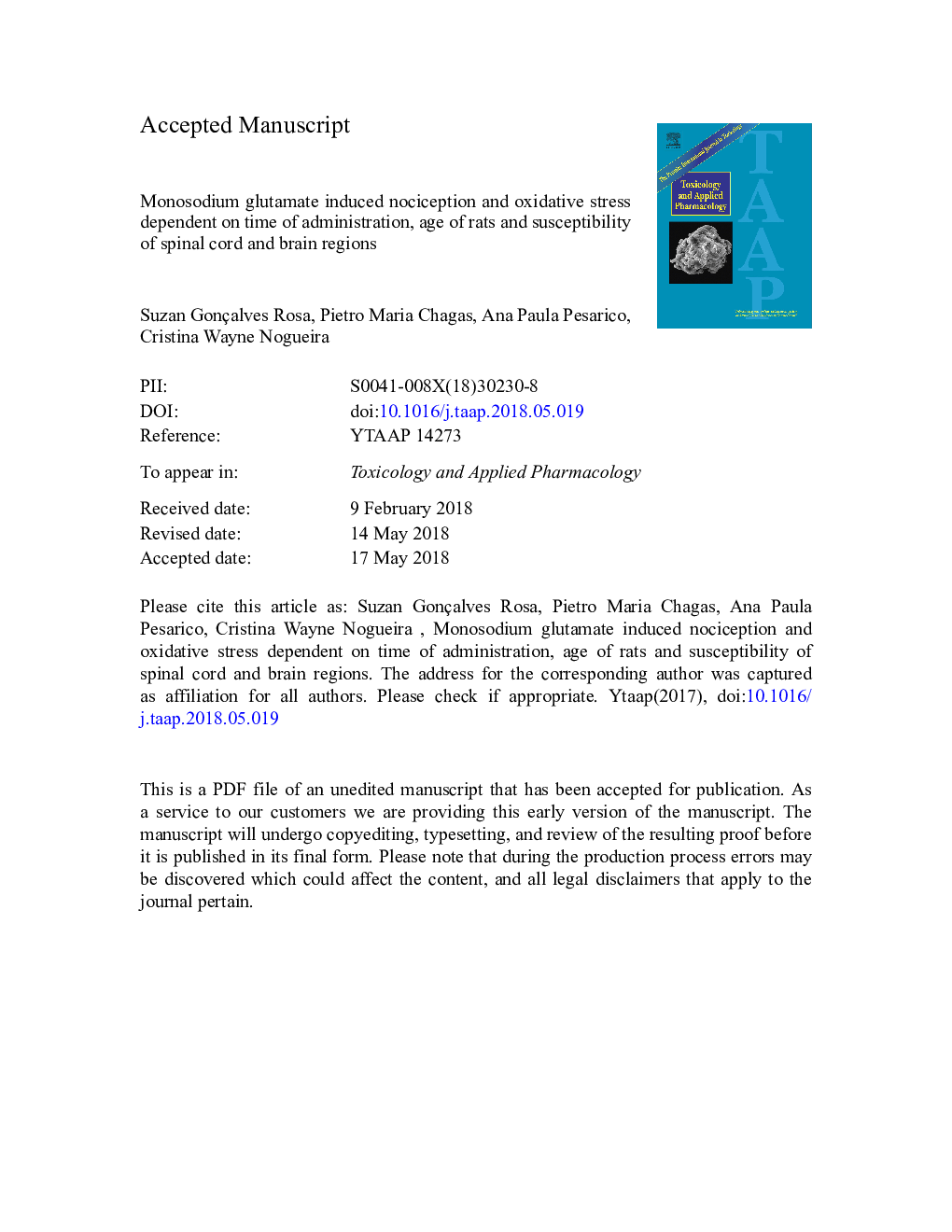| Article ID | Journal | Published Year | Pages | File Type |
|---|---|---|---|---|
| 8538431 | Toxicology and Applied Pharmacology | 2018 | 30 Pages |
Abstract
Monosodium glutamate (MSG), a food flavor enhancer used worldwide, has been studied because it may cause neurotoxicity, which is associated with oxidative stress. The aim of this study was to investigate whether spinal cord and brain regions are affected by oxidative stress and the temporal profile of nociceptive responses induced by MSG in newborn and adult rats. The newborn (post natal day, PND 1) Wistar rats received ten subcutaneous injections of MSG (4.0â¯g/kg) or saline solution. At PND 3, 11 or 90, the rats performed nociceptive tests and parameters of oxidative stress were evaluated in samples of spinal cord and brain regions. Adult rats (PND 90) were injected with MSG (4.0â¯g/kg, 10 injections) or saline solution, but MSG did not induce nociception or oxidative stress. The neonatal administration of MSG increased nociceptive behavior in the tail immersion, hot plate and formalin tests and decreased the SOD activity in spinal cord of PND 3 rats. In rats at PND 11 and 90, the neonatal administration of MSG increased mechanical allodynia and nociceptive behavior in the hot plate and formalin tests. The neonatal administration of MSG induced oxidative stress in the hippocampus of rats at PND 11 and in the cerebral cortex at PND 90. These findings demonstrate that nociception and oxidative stress was induced in rats dependent on the time of MSG administration, susceptibility of spinal cord and brain regions and the age of rats.
Related Topics
Life Sciences
Environmental Science
Health, Toxicology and Mutagenesis
Authors
Suzan Gonçalves Rosa, Pietro Maria Chagas, Ana Paula Pesarico, Cristina Wayne Nogueira,
